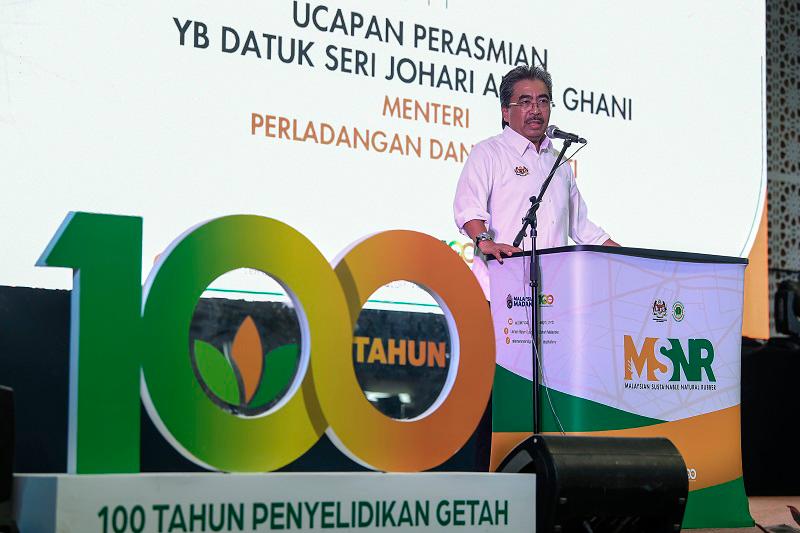BALING: The Malaysian Rubber Board (LGM) launched the Malaysian Sustainable Natural Rubber (MSNR) initiative today, aimed at ensuring the country’s rubber industry meets international standards in line with the United Nations Sustainable Development Goals (SDGs) 2030.
Plantation and Commodities Minister Datuk Seri Johari Abdul Ghani, when officiating the launch, said that the MSNR was a sustainability recognition through a regulatory and enforcement approach granted to licence and permit holders of the MRB to ensure that rubber produced could enter the global market as a sustainable and competitive product.
“Since July 1, MRB has been actively conducting MSNR compliance checks on rubber smallholders and MRB licence holders through face-to-face inspections as well as data collection on farm locations and premises,” he said in his speech during the MSNR launching ceremony at Dewan Kenangan Tun Abdul Razak here.
Also present were Deputy Minister Datuk Chan Foong Hin, MRB chairman Datuk Zurinah Pawanteh, and MRB director-general Datuk Dr Zairossani Mohd Nor.
More than 500 smallholders, industry players, and representatives from agencies and ministries were present at the launch.
Johari said MSNR enforcement would begin on Jan 1, 2025, and MRB licence and permit holders must comply with the standard operating procedures (SOPs) to obtain MSNR certification from MRB.
He said MSNR focused on five key sustainability principles - no deforestation for rubber planting, rubber planting according to the National Land Code, environmental sustainability, social compliance, and supply chain traceability.
Meanwhile, Zairossani said MSNR would help track and trace the source of supplies, processes, and movement of materials or products throughout the supply chain, from raw materials to final disposal in the rubber industry.
“This programme also helps MRB licence and permit holders to identify and address sustainability risks such as illegal logging and labour exploitation while ensuring compliance with sustainability standards and laws,” he said.
He added that managing these risks would allow licence and permit holders to make better decisions in their efforts to ensure the long-term sustainability of the products.
Zairossani expressed hope that the implementation of MSNR would assist and encourage all stakeholders in the rubber industry, especially smallholders, who were essential to the country, to continue their roles as leading producers of natural rubber.









